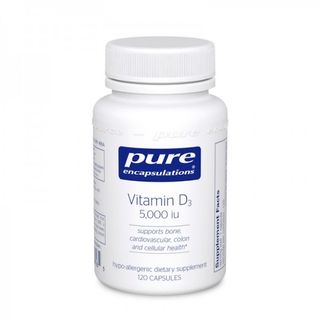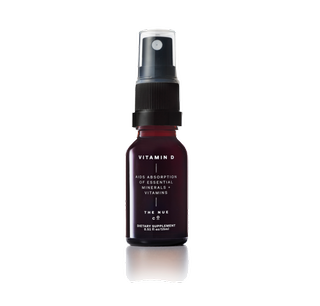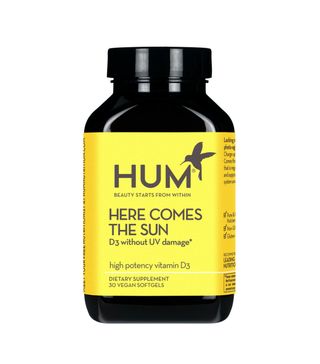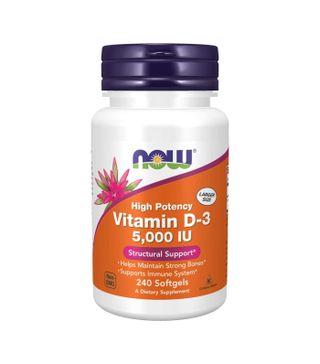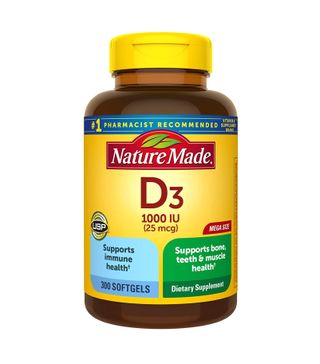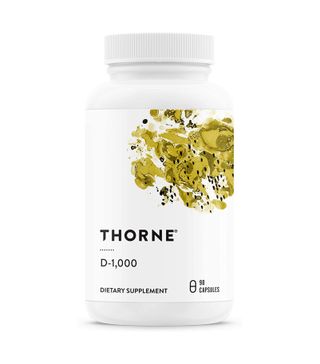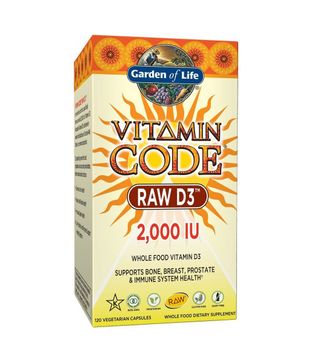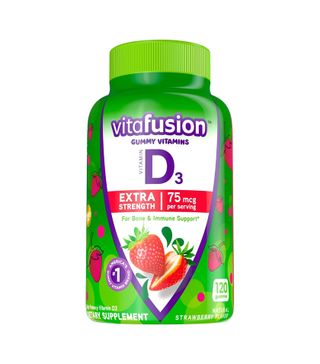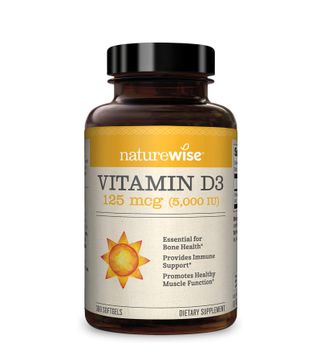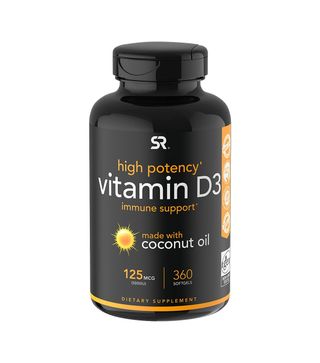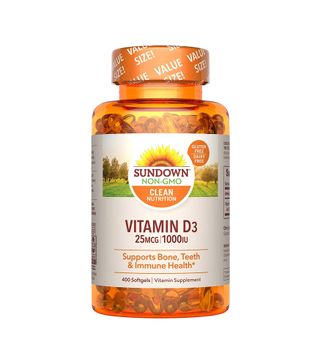From Better Immunity to Better Mood: The Little-Known Benefits of Vitamin D


We've been told time and time again that exposing our bodies to a little bit of sunshine is good for us. (As long as we don't bake under those UVA and UVB rays for too long without shade and sunscreen, that is—doing that is basically asking for skin damage.) After all, responsible sun exposure is touted for its ability to boost our mood and increase our physical health.
But what about fall and winter when our days are much darker and colder? Come January and February, our sun exposure is often pretty limited (especially for those of us living on the East Coast and in the Midwest, where winter is three straight months of swirling snow and cloudy skies), leading to vastly diminished vitamin D levels.

And according to Dana Kofsky of Wellness Styled, "Vitamin D has several very important functions," Kofsky tells us. "Perhaps the most vital are regulating the absorption of calcium and phosphorus, building a healthy immune system, fighting disease, and regulating moods." The consequences of vitamin D deficiency are major and can include depression, anxiety, fatigue, muscle pain, back pain, blood-sugar issues, and weight gain. To learn more about the way vitamin D affects the body, along with the foods and supplements that can keep your levels steady, keep reading.
1. It Has Beneficial Effects on the Symptoms of Depression

Research supports vitamin D's effect on mental health, especially where depression is concerned. One study conducted in the Netherlands found that low levels of vitamin D were linked to symptoms of both major and minor depression in research participants. Another study found that supplementation of vitamin D improved participants' symptoms, resulting in better health and overall well-being.
Vitamin D should not be used as a treatment for depression—you should see a healthcare professional for that.
2. It Plays a Role in Your Anxiety Levels

It's not just depression. Some research indicates low levels of vitamin D play a role in heightening levels of anxiety. In fact, one study showed that children who were vitamin D deficient experienced significantly more anxiety and stress than their peers. In this way, lack of vitamin D and sun exposure could be seriously messing with your mental health.
3. It Can Help With Fatigue

Kofsky says low levels of vitamin D can also result in fatigue and generalized weakness, and studies support this. One study in particular asked participants to rate their fatigue levels and found that 77% of participants with chronic fatigue were vitamin D deficient. Once their vitamin D levels were brought back to normal levels, their fatigue symptom scores improved significantly.
4. It Boosts Immunity

Aside from offering amazing mental health benefits, vitamin D can also bolster your immune system (which we could all use to avoid wintertime colds and flus). Research says that low levels of vitamin D results in "increased susceptibility to infection." So maybe instead of increasing our vitamin C intake before holiday traveling, we'll supplement our immune system with vitamin D, too.
5. It Allows for Better Absorption of Calcium
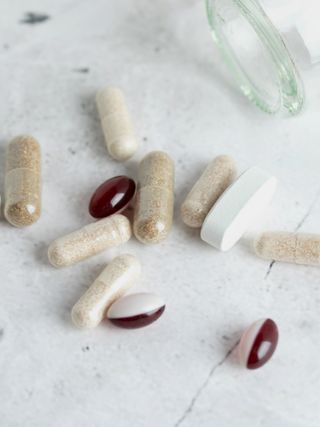
If you've ever wondered why so many dairy products include extra vitamin D, that's because it increases the body's ability to absorb calcium. This is important, since calcium can only strengthen bones (and prevent chronic weakness like osteoporosis) if it's first fully absorbed.
Luckily there are things you can do to stop that from happening. First, you can try to eat foods rich in vitamin D. Kofsky recommends including shiitake and button mushrooms, tuna, salmon, sardines, and eggs in your diet. There is a catch, though.
"Vitamin D is very hard to absorb through food, and the only way to truly get it from the sunlight is direct light for 20 minutes a day without sunscreen," she shares. "If you believe you might need to take supplements, I would first suggest getting your blood tested and making sure it's something you're actually low on."
If you're low in vitamin D (as determined by blood tests or your doctor), supplements are an effective option. "Personally, I love Pure Encapsulations Vitamin D supplements, and I would suggest starting with a low dose," Kofsky says. "Most people and clients I see can benefit from vitamin D, so if you're not getting it from the sun, it could be a great supplement to start taking!"
Vitamin D Supplements to Shop
Next, These Are the Vitamins You Should Be Taking in Your 20s and 30s
This article was originally published at an earlier date and has since been updated.
Disclaimer
This article is provided for informational purposes only and is not intended to be used in the place of advice of your physician or other medical professionals. You should always consult with your doctor or healthcare provider first with any health-related questions.

Kaitlyn McLintock is an Associate Beauty Editor at Who What Wear. Although she covers a wide range of topics across a variety of categories, she specializes in celebrity interviews and skincare and wellness content. Having lived in Los Angeles and Austin, Texas, she recently relocated back to her home state of Michigan where she works remotely. Prior to Who What Wear, she freelanced for a variety of industry-leading digital publications, including InStyle, The Zoe Report, Bustle, Hello Giggles, and Coveteur. Before that, she held a long-term internship and subsequent contributor position at Byrdie. When she's not writing, researching, or testing the latest and greatest beauty products, she's working her way through an ever-growing book collection, swimming in the Great Lakes, or spending time with family.
-
 This Beauty Blogger's Wind-Down Routine Is Anything But a Snooze
This Beauty Blogger's Wind-Down Routine Is Anything But a SnoozeSee her go-to workout and her favorite vitamins.
By Virginia Yapp
-
 13 Products That Will Step Up Your Self-Care Game From Home
13 Products That Will Step Up Your Self-Care Game From HomeGet that glow from within.
By Natalie Gray Herder
-
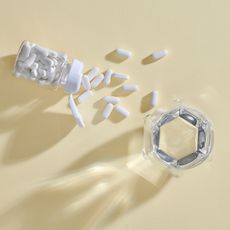 Don't Forget This Vital Ingredient When It Comes to Gut Health
Don't Forget This Vital Ingredient When It Comes to Gut HealthIt's crucial.
By Sarah Yang
-
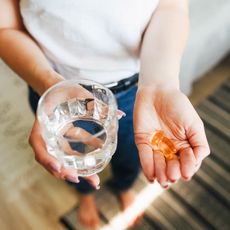 FYI: This Vitamin Affects Your Skin, Immune System, and Eye Health
FYI: This Vitamin Affects Your Skin, Immune System, and Eye HealthIt's a big deal.
By Sarah Yang
-
 This Fatigue-Fighting Solution Might Be Better Than a Cup of Coffee
This Fatigue-Fighting Solution Might Be Better Than a Cup of CoffeeIt will give you a boost.
By Sarah Yang
-
 Taking This Supplement Improves Sleep, Regulates Blood Pressure, and More
Taking This Supplement Improves Sleep, Regulates Blood Pressure, and MoreIt's an essential mineral.
By Sarah Yang
-
 The Only Wellness Deals Worth Buying on Amazon Prime Day
The Only Wellness Deals Worth Buying on Amazon Prime DayTime to shop.
By Sarah Yang
-
 Taking This Daily Supplement Can Give You Whole-Body Protection
Taking This Daily Supplement Can Give You Whole-Body ProtectionAre you getting enough of it?
By Sarah Yang
